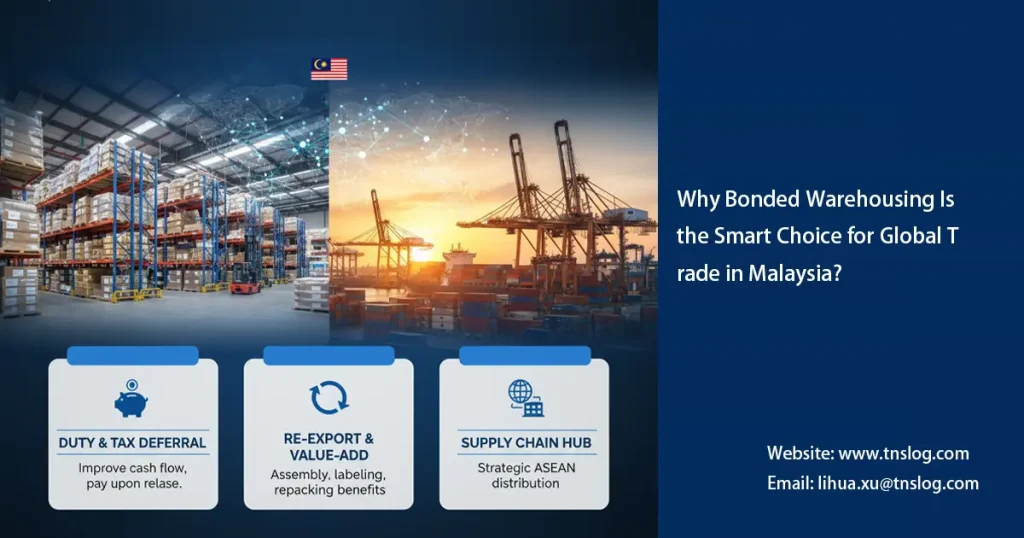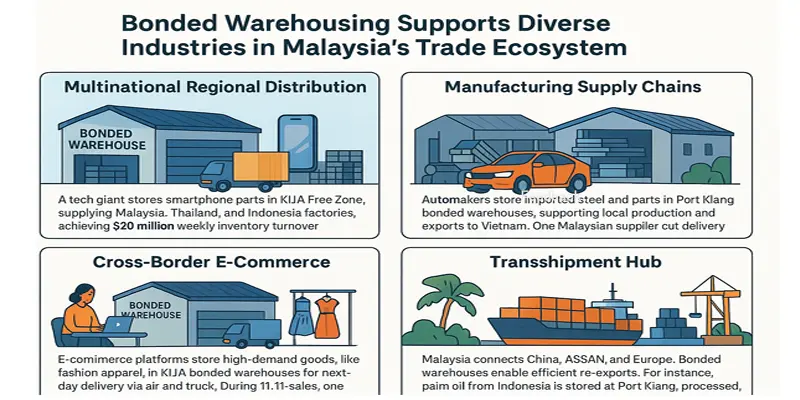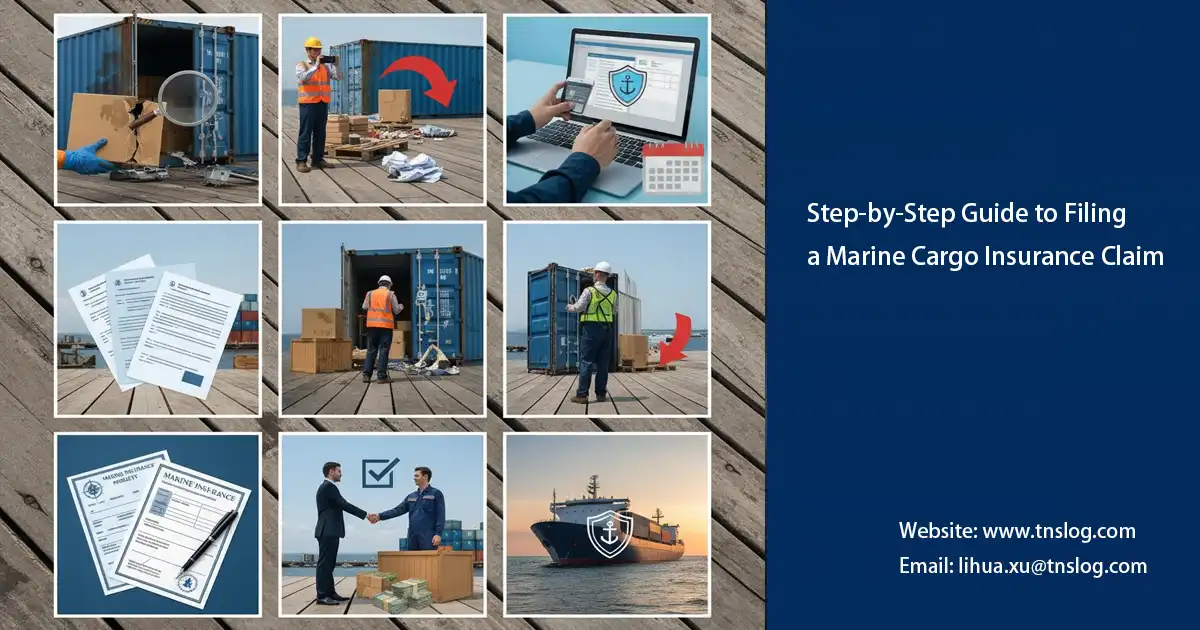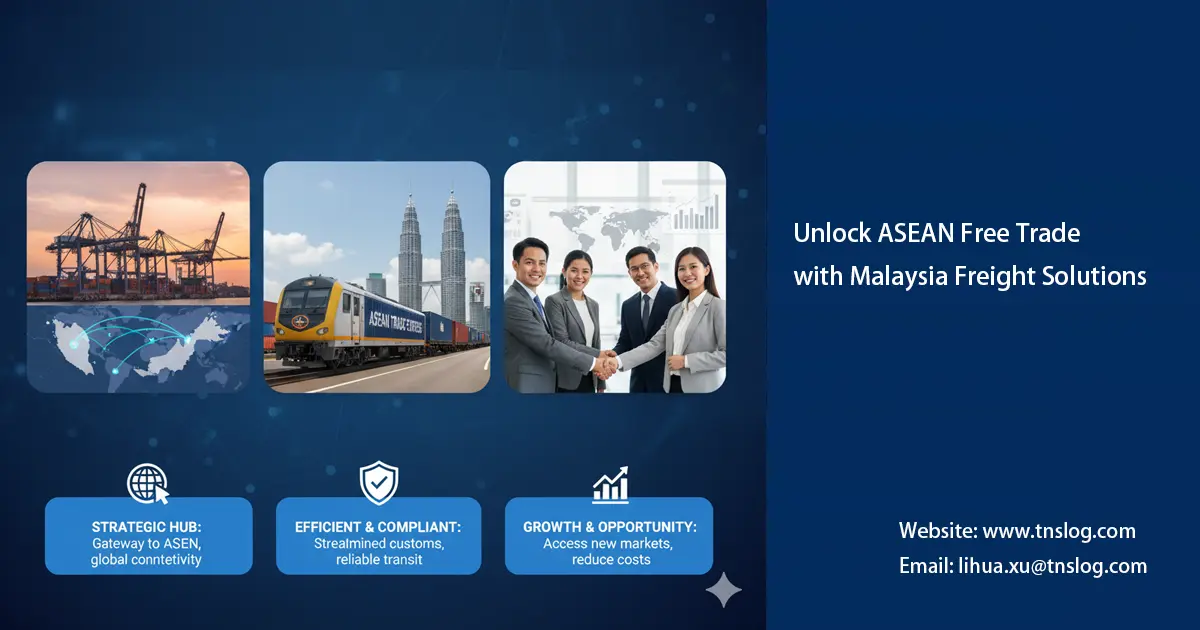Why Bonded Warehousing Is the Smart Choice for Global Trade in Malaysia?
Bonded warehousing involves storing goods under customs supervision without paying import duties or taxes until they enter the local market or are re-exported. In Malaysia, a key trade hub, bonded warehouses are vital for international trade, imports, and transshipment. They leverage Malaysia’s strategic location and robust logistics infrastructure. For example, goods stored at Port Klang’s bonded warehouse can remain for months, cleared only when needed or transshipped to Singapore, cutting costs significantly.
Bonded Warehousing vs. Standard Warehousing
Bonded and standard warehouses differ significantly in function, regulation, and use. Understanding these differences helps optimize supply chains:
- Customs Oversight: Bonded warehouses operate under strict Malaysian Royal Customs Service (RMCD) rules, like the Customs Act 1967, ensuring compliant tax-free storage. Standard warehouses lack customs oversight, requiring immediate duty payment on import.
- Tax Payment Timing: Bonded warehouses defer duties until goods enter the local market. For instance, electronics can be stored at Port Klang and taxed only when sold locally. Standard warehouses demand upfront tax payment, straining cash flow.
- Use Cases: Bonded warehouses suit international trade, e-commerce, and regional distribution. Standard warehouses are better for local distribution or cleared goods. For example, palm oil exporters use bonded warehouses for re-export to Europe, while standard warehouses serve local retail.
- Operational Complexity: Bonded warehouses involve complex customs documentation (e.g., FIATA Bills of Lading) and audits but offer streamlined clearance. Standard warehouses are simpler but lack tax exemptions or transshipment capabilities.
- Cost Efficiency: Bonded warehouses reduce costs through deferred taxes and re-export benefits, ideal for high-value or high-duty goods. Standard warehouses suit low-duty or local goods.

Key Benefits of Bonded Warehousing
Bonded warehousing offers clear advantages for Malaysian freight forwarders and global traders:
- Deferred Taxes: Duties and taxes apply only when goods enter the local market, freeing up capital. For example, importers store Chinese electronics at Port Klang, paying taxes only on local sales.
- Improved Cash Flow: Delaying taxes helps manage finances, especially for high-value items like machinery. Industry estimates suggest savings of up to 20% on upfront costs.
- Supports Transshipment and Re-export: Goods can be stored, processed, and re-exported tax-free. Textiles transshipped to Singapore or Europe via Malaysia avoid local duties.
- Flexible Inventory Management: Bonded warehouses enable just-in-time inventory for e-commerce and distributors. Retailers store seasonal goods, like festive items, and release them as needed.
- Streamlined Customs: Centralized clearance and bulk processing cut delays. Malaysia’s Free Zone facilities reduce clearance times by up to 30%.
Typical Applications of Bonded Warehousing

Bonded warehousing supports diverse industries in Malaysia’s trade ecosystem with specific applications:
- Multinational Regional Distribution: Global firms use bonded warehouses as ASEAN distribution hubs. For example, a tech giant stores smartphone parts in KLIA Free Zone, supplying Malaysia, Thailand, and Indonesia factories, achieving $20 million weekly inventory turnover with minimal clearance delays.
- Manufacturing Supply Chains: Automakers store imported steel and parts in Port Klang bonded warehouses, supporting local production and exports to Vietnam. One Malaysian supplier cut delivery times by 15% and saved 10% on duties using bonded storage.
- Cross-Border E-Commerce: E-commerce platforms store high-demand goods, like fashion apparel, in KLIA bonded warehouses for next-day delivery via air and truck. During 11.11 sales, one retailer handled 100,000 parcels, slashing clearance costs by 30% and boosting delivery speed by 25%.
- Transshipment Hub: Malaysia connects China, ASEAN, and Europe. Bonded warehouses enable efficient re-exports. For instance, palm oil from Indonesia is stored at Port Klang, processed, and re-exported to Europe tax-free, saving exporters millions annually.
How to Choose a Bonded Warehousing Provider?
Choosing the right provider is key to optimizing logistics. Malaysian freight forwarders should consider:
- Strategic Location: Select warehouses near Port Klang or KLIA to cut transit times. A Port Klang Free Zone warehouse can reduce trucking costs by 15-20%.
- Customs Expertise: Ensure familiarity with RMCD regulations and AEO certification to avoid delays or fines. Providers versed in ASEAN Free Trade Area agreements speed up clearance.
- Value-Added Services: Choose providers offering labeling, sorting, repackaging, or last-mile delivery, vital for e-commerce and manufacturing. Customized packaging for ASEAN markets is a plus.
- Digital Tracking: Prioritize real-time inventory systems. DHL’s Warehouse Management System (WMS) provides live stock and shipment tracking for transparency.
- Security and Insurance: Confirm 24/7 surveillance, temperature-controlled storage (e.g., for perishables), and full insurance. Electronics warehouses need anti-static facilities.
- Local Expertise: Malaysian providers offer faster responses and deep knowledge of ASEAN trade routes, outperforming global operators in regional compliance.
How TNS LOG Provides Bonded Warehousing Solutions?
TNS, a leading Malaysian freight forwarder, offers tailored bonded warehousing solutions:
- Experience and Credentials: With extensive logistics expertise, TNS holds AEO certification and complies with RMCD rules for smooth customs processes.
- Core Services: TNS provides bonded storage, customs clearance, inventory management, and re-export logistics. Facilities near Port Klang and KLIA ensure fast transshipment.
- Success Stories: TNS helped an e-commerce giant store goods in KLIA Free Zone, cutting delivery times by 25%. For a palm oil exporter, TNS enabled tax-free re-export to Europe, saving 10% on logistics costs.
Conclusion
Bonded warehousing delivers cost savings, flexibility, and efficiency for international trade. In Malaysia, it strengthens the country’s role as a trade hub, especially for transshipment and re-exports. Partnering with providers like TNS leverages Malaysia’s infrastructure and customs benefits. Contact a trusted freight forwarder to unlock bonded warehousing’s potential.
You may also be interested in
Have Anything To Ask Us?
Please fill in your email in the form and we’ll get back to assist you soon!




